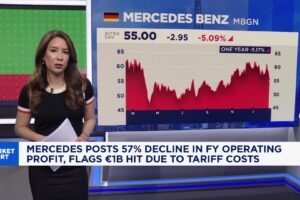
(For a live blog on the U.S. stock market, click LIVE/ or type LIVE/ in a news window)
* Energy stocks gain on higher oil prices
* Dow set for worst first quarter ever
* Carnival slumps on plan to raise debt, suspend dividend
* Indexes up: Dow 0.18%, S&P 0.02%, Nasdaq 0.66% (Updates to open, adds comment)
By Uday Sampath Kumar and Medha Singh
March 31 (Reuters) – U.S. stock markets steadied on Tuesday at the end of the worst first quarter for the S&P 500 since 1938 amid growing evidence of the largescale damage caused by the collapse in oil prices and business activity due to the coronavirus.
Real estate stocks, utilities and consumer staples – commonly considered defensives – led declines following a rebound sparked by bargain hunters looking for stocks likely to weather an economic slump.
Another set of gains for Facebook Inc, Amazon.com Inc , Apple, Netflix Inc and Google-parent Alphabet Inc, known as the FAANG group of stocks, helped the Nasdaq jump 1% on Tuesday.
“Stocks have been on a wild ride … (and) not surprisingly, investors are split on whether to lean in to or fade the current rally,” said Jonathan Golub, chief U.S. equity strategist at Credit Suisse Securities in New York.
An unprecedented round of fiscal and monetary stimulus had helped equity markets stabilize last week following wild swings that sent the benchmark S&P 500 up 9% one day only to slump 12% in the next session.
Wall Street’s volatility index has retreated from 12-year highs, but is still at levels rarely seen since the global financial crisis as the outbreak deepens in the United States and disrupts supply chains.
Sliding from the record highs of mid February, the Dow Jones and S&P 500 indexes are now set to end the quarter more than 18% lower from the start of the year.
The declines have erased more than $5 trillion from the value of S&P 500 firms in the first quarter, and investors fear corporate defaults and more mass layoffs going in to the second quarter.
The blue-chip Dow is on course for its biggest quarterly percentage decline since 1987 and the tech-heavy Nasdaq is set to close out its worst first three months of the year since 2008.
“While the majority of people want to remain optimistic that we’ve seen the lows … that optimism is merely based on a lot of hope,” said Michael James, managing director of equity trading at Wedbush Securities in Los Angeles.
At 10:17 a.m. ET, the Dow Jones Industrial Average was up 39.30 points, or 0.18%, at 22,366.78, the S&P 500 was up 0.54 points, or 0.02%, at 2,627.19. The Nasdaq Composite was up 51.60 points, or 0.66%, at 7,825.75.
Shares of Carnival Corp, already by hammered by plunging global travel demand, tumbled 12% after it said it was raising about $6 billion in combination debt and equity and suspend its dividend payouts.
The energy index jumped 4%, boosted by a rebound in prices from 18-year lows after the United States and Russia agreed to discuss stabilizing energy markets.
Advancing issues almost matched decliners on the NYSE and on the Nasdaq.
The S&P index recorded one new 52-week high and no new low, while the Nasdaq recorded seven new highs and 13 new lows. (Reporting by Uday Sampath and Medha Singh in Bengaluru; Additional reporting by Sruthi Shankar; Editing by Sagarika Jaisinghani and Arun Koyyur)











